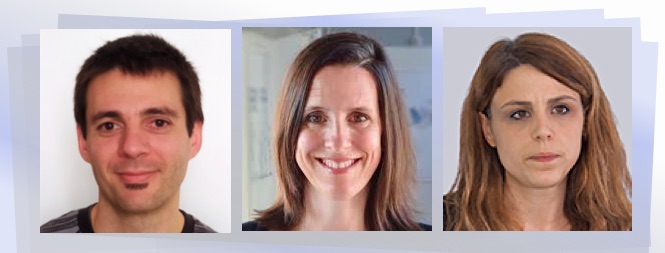i3 seminar “Analysis of online participation” will welcome
Emmanuel Marty, Nathalie Pignard-Cheynel
and Brigitte Sebbah
Internet users’ participation in the journal Le Monde’s live-blog during the DSK case

Emmanuel Marty, Lecturer, Research Group on Communication Issues (Gresec) – Université Grenoble Alpes.
Nathalie Pignard-Cheynel, Professor of Digital Journalism at the Academy of Journalism and Media (University of Neuchâtel), Associate Researcher at the Mediation Research Centre (Crem, University of Lorraine).
Brigitte Sebbah, Lecturer, LERASS (Laboratoire d’Études et de Recherches Appliquées en Sciences Sociales), University of Toulouse 3- Paul Sabatier.
Articles to read to prepare for the seminar:
Emmanuel Marty, Nathalie Pignard-Cheynel and Brigitte Sebbah (2016). Internet users’ participation and news framing: The Strauss-Kahn case–related Live Blog at Le Monde.fr. New Media & Society, 19(12): 1964-1982.
Nathalie Pignard-Cheynel et Brigitte Sebbah (2015). Le live-blogging : les figures co-construites de l’information et du public participant. La couverture de l’affaire DSK par lemonde.fr. Sur le journalisme, About journalism, Sobre jornalismo, 4(2), 134-153.
Our presentation will focus on the analysis of reader-contributors’ participation through live blogging, or online and live web coverage of an event. This work focuses specifically on the live coverage provided by lemonde.fr during the “DSK affair” in May 2011. This work has been the subject of two publications we would like to present together to show the methodological path we have followed. The first part consists of the analysis of a corpus relating to the first 24 hours (out of 40) of this coverage and includes two documents: the live stream and all the messages submitted by Internet users, of which only a tiny part has been published (1%). The comparative analysis of the two facets of this participation leads us to analyze the place of the ordinary voice of internet users in journalistic production by questioning the process of journalistic moderation of participation and the way in which it contributes, alongside the enunciative postures of internet users, to constructing an identity of the “public” of live events. This qualitative approach, which consists of manually identifying the contributions of internet users according to their register of expression, was then extended by a lexicometric analysis of the exhaustive corpus of messages submitted and the live publication. The comparative approach was then applied, using the operational concept of “media framing of participation” to question the topical representativeness of the published live performance vis-à-vis all the contributions, in conjunction with the analysis of the registers of expression previously implemented. By successively presenting these two approaches on the same subject our goal is to show how qualitative and quantitative methods for analyzing the discourses of online participation can articulate and inform each other.
To receive the texts and indicate your attendance at this seminar session, please register here.
i3 seminar “Analysis of online participation”
The “Analysis of Online Participation” (APeL) seminar aims to develop reflection on approaches to the use of data about the online usage and participation. The seminar is a place for researchers from various backgrounds to meet and exchange knowledge, practices and know-how. At each session, the seminar guests present and discuss the “making of” of one of their researches: construction of the survey, specificities of the data engineering implemented, tools for capturing / building corpora, analysis strategies and tools used, etc.
Information and registration
The seminar is open to all. Please register here to participate in this session.
Date: March 4, 2021, from 10:30 to 12:30
The session will be held (in French) by videoconference.

Contact: Alexandre Mallard or Valérie Beaudoin
Find out more about the programme and the rules of the seminar
Photo sources: Emmanuel Marty, GRESEC, université Grenoble Alpes, Nathalie Pignard-Cheynel, Université de Neuchâtel, and Brigitte Sebbah, Université Toulouse 3, Paul Sabatier.

